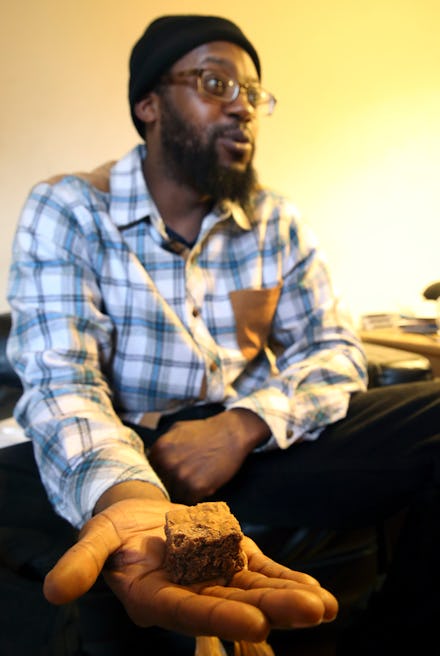Therapists Harbor Bias Against Poor, Black Patients — Here's Proof

For some communities, help is neither a phone call nor doctor's visit away.
According to a new study from the American Sociological Association, which placed calls to 640 therapists in New York City, therapists are less likely to return calls from prospective patients whom they assume to be poor and black. The study, titled "'Sorry, I'm Not Accepting New Patients': An Audit Study of Access to Mental Health Care," appears in the June issue of the Journal of Health and Social Behavior.
Here's how the study worked: Actors were hired to call therapists and read scripts saying that they were feeling sad, had insurance and wanted to make an appointment. Some scripts included racial markers like names. For instance, a caller would identify themselves as Amy Roberts, which was meant to read as white. Another would identify themselves as Latoya Jackson, which was meant to signify a black caller.
Researchers found that therapists were 30% less likely to return a call from a middle-class black woman than other groups; middle-class black men were 60% less likely to have their phone calls returned. The implications of the study's findings are especially troubling given the cultural barriers that already exist for black people who seek therapy.
Middle-class black women were 30 % less likely to be called back by therapists, and middle-class black men were 60 % less likely.
Callback rates were low across the board. Among middle-class prospective patients, only 28% of whites had their phone calls returned. But black patients faired worst of all: 17% of middle-class blacks had their phone calls returned, and 8% of black working-class people did.
Heather Kugelmass, a doctoral student in sociology at Princeton and author of the study, was surprised by the findings. "Although I expected to find racial and class-based disparities, the magnitude of the discrimination working-class therapy seekers faced exceeded my grimmest expectations," Kugelmass said in a press release.
"It is striking that discrimination toward black and working-class therapy seekers occurred even though all therapy seekers had the same health insurance and were contacting in-network providers. This evidence points to bias rather than financial considerations. It is possible that if insurance coverage had not been held constant, inferences based on racial and class stereotypes would have augmented discrimination even beyond that which was observed."
Though African-Americans have major mental health disorders, such as depression, schizophrenia, bipolar disorder and post-traumatic stress disorder, at comparable or even higher rates than their white counterparts, only about a quarter of blacks seek mental health care, compared to about 40% of whites, according to the National Alliance on Mental Health. According to the NAACP, 18% of African-Americans under 65 years old go without health insurance, while the rate for the United States as a whole is 10.4%.
There's also a great deal of stigma attached to mental illness in the black community, according to experts. "There are some African-Americans who believe, 'I don't want anyone in my business and I have to deal with my problems by myself," Janet Taylor, a black psychiatrist, told Ebony.
Therapists aren't immune to the biases that infect society at large, according to researchers. But the profession itself is overwhelmingly white. Only 1.5% of the American Psychological Association's members are black. As the National Register of Health Service Psychologists put it in its 2015 report: "We are not winning in the struggle to get a profession that is more representative of the American population."
That, it turns out, is bad for black people's mental health.